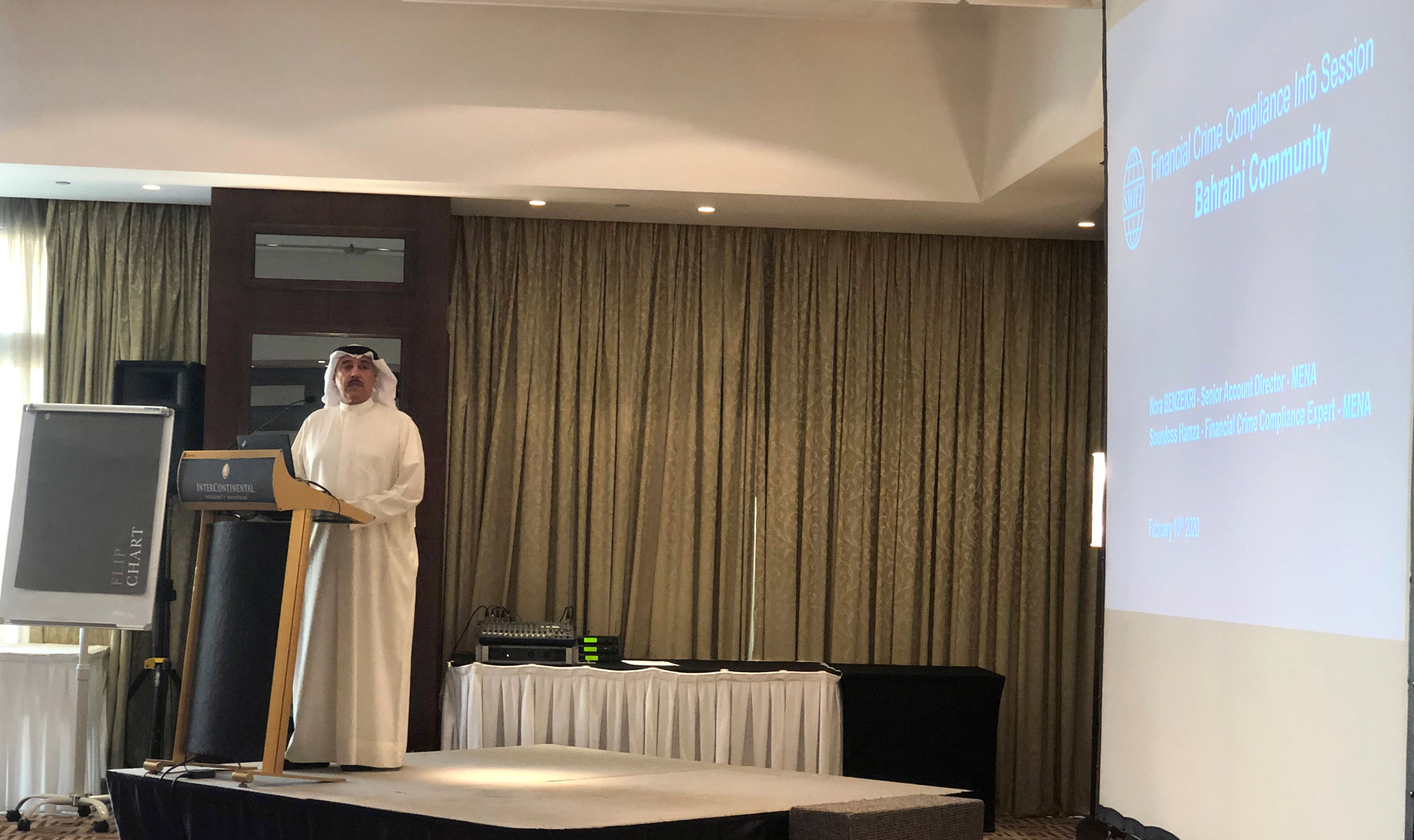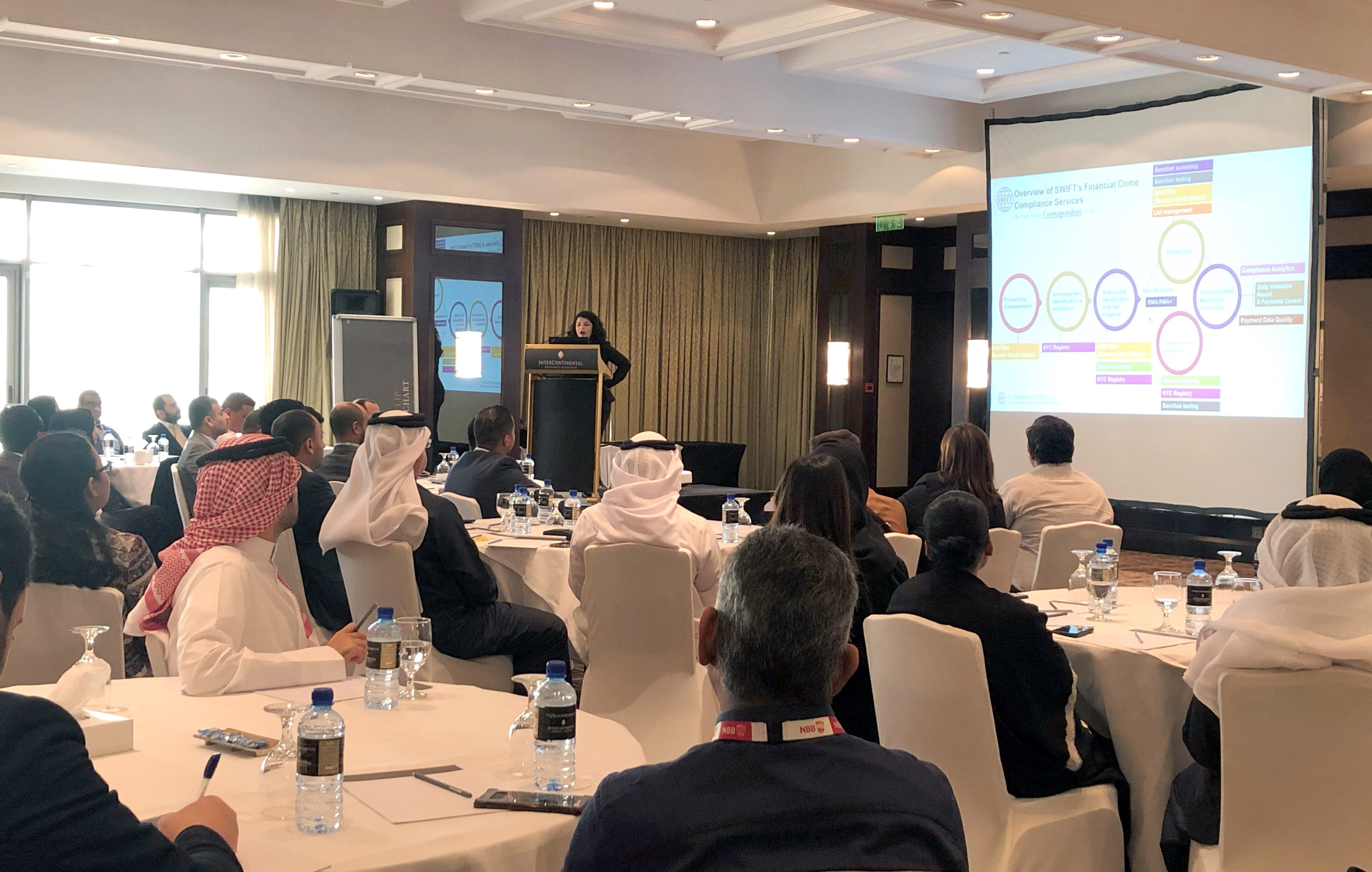
Manama, Bahrain – 11 February 2020 – The Central Bank of Bahrain (CBB) in coordination with SWIFT, organized a workshop for the Kingdom of Bahrain’s SWIFT User Group community on its Financial Crime Compliance (FCC). The half‑day workshop was attended by more than 120 representatives from Financial Institutions and took place on the 10th February 2020 at the InterContinental Regency Hotel.
The workshop focused on the effectiveness of Financial Institutions compliance programmes that is expected to keep up with the demands of sanctions, anti-money laundering (AML) and Know Your Customer (KYC) requirements. CBB firmly believes that the FCC can be successfully enforced by the coordinated effort of Bahrain’s SWIFT user‑group for safeguarding Bahrain’s financial industry as a whole.
Mr. Yousef Al Fadhel, Executive Director, Corporate Services at CBB and Chairperson of the Bahrain’s SWIFT User-Group addressed the participants at the opening thanking them and encouraging them to overcome the ever-increasing threats of financial cybercrime by availing of the SWIFT services, thereby strengthening Bahrain’s reputation and competitive edge in the global payment systems industry.
Furthermore, the workshop presented a broad portfolio of solutions developed by SWIFT towards effectively detecting sanctions, KYC registry, AML and fraud prevention at individual and entity level globally. An important solution in the portfolio was the Sanctions Screening, a fully managed service that enables real-time screening of correspondent banks against “standardised sanctions list” from all major regulatory bodies, with instant alerts on suspicious transactions. The service also provides for workflows and set-up options that would fit into FI processes.
The workshop also provided details on other SWIFT services like “Payment Controls” which help to mitigate fraudulent attacks by detecting and preventing high-risk payments and supporting recovery. It also combines real-time monitoring, alerting and blocking of sent payments with independent daily reporting.

